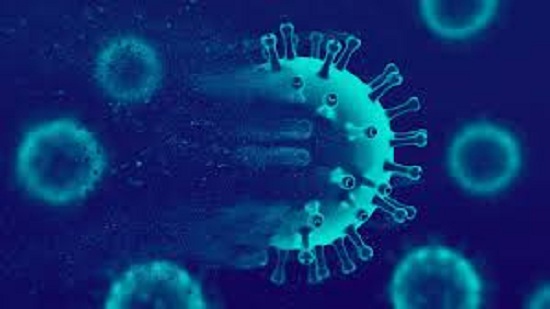Microbes, otherwise called germs, such as bacteria, fungi, parasites, viruses, are organisms that are too small to be seen with the naked eye.
They can be found in almost every habitat present in nature. Microbes are important in many ways, serving in the production of foods and beverages, industrial chemicals and other bioactive molecules, water treatment, energy generation, biotechnology, warfare, soil enrichment, gut microflora, and are the causative agents, or pathogens, of many infectious diseases in humans, animals and plants.
Antimicrobial resistance (AMR) occurs when microbes develop the ability to defeat the drugs (antimicrobials) designed to kill them or stop their growth. This puts many of the gains of modern medicine at risk, as fewer antimicrobials are effective against a particular microbe, thus making infections become extremely difficult to treat and more likely to spread.
It also makes medical and surgical procedures such as Caesarean section, hip replacement, organ transplantation, and cancer chemotherapy much riskier. Antimicrobial resistance is a top global public health and development threat. It is estimated to have been directly responsible for 1.27 million deaths in 2019, and is projected to cause 39 million deaths between 2025 and 2050.
In addition to death and disability, AMR has significant economic costs for both health systems and national economies. The World Bank estimates that AMR could result in US$1-4 trillion gross domestic product (GDP) losses per year by 2030 and US$1 trillion additional healthcare costs by 2050.
Antimicrobial resistance affects countries in all regions and at all income levels, and its spread does not recognise country borders. It is exacerbated by poverty and inequality, as seen in many low- and middle-income countries (LMICs) such as in Sub-Saharan Africa. It has the potential to affect the healthcare, veterinary and agriculture industries, with grave impact.
There could be increased risk of severe, extended illness or death, severe medicines side effects, prolonged hospital stays, more medical appointments, and increased medical costs.
For instance, the emergence of drug-resistant parasites to Artemisinin-based combination therapies (ACTs), which are the recommended first-line treatment for uncomplicated Plasmodium falciparum malaria in most malaria endemic countries, is a major threat to malaria control. In addition, AMR infections could reduce livestock and crop productivity, thereby threatening food security.
Though, microbes naturally become resistant to medicines over time through genetic changes, the emergence and spread of AMR is accelerated by human activities. Current high rate of misuse, overuse and mismanagement of antimicrobials in humans, animals and plants is worrisome.

These include taking antibiotics for any infection without knowing the causative microbe, taking antibiotics when not needed, or without doctor’s prescription. This is also seen in agricultural settings such as poultry and aquaculture where antimicrobials are given in low doses for the prevention of diseases.
It is then stored in the animal tissues and consumed by humans in animal by-products such as meat, milk and eggs. Just as every living thing strives for self-survival, microbes take advantage of any opportunity to multiply. For animals, hygiene procedures and bio-security principles should be enforced to prevent the introduction and spread of pathogens; animals should be properly vaccinated to reduce the need for antimicrobials.
Infection prevention and control in farms may also be achieved by segregating sick animals, restricting movement of animals, animal products, vehicles and persons coming into and out of the farm, and seeking prompt veterinary care. Priorities to address AMR include preventing all infections, which may result in inappropriate use of antimicrobials; ensuring universal access to quality diagnosis and appropriate treatment of infections; and strategic information and innovation.
There needs to be a coordinated global action that brings together stakeholders from relevant sectors, human health, veterinary, food production, animal, environmental, to communicate and work together in the design, implementation and monitoring of programmes, policies, legislation and research to mitigate AMR and attain better health and economic outcomes.
During the 2015 World Health Assembly, countries adopted the Global Action Plan (GAP) on AMR for the development and implementation of multi-sectoral national action plans. As of November 2023, 178 countries had developed AMR national action plans aligned with the GAP. The LMICs need to be more committed to this action.
To ensure sustained progress, the countries need to establish a functioning multi-sectoral AMR governance mechanism, prioritise activities, mobilise resources, both domestic and external, to effectively implement their plan. They can integrate the core package of AMR interventions in national plans and strategies for universal health coverage and health emergency preparedness and response.
The World AMR Awareness Week (WAAW) is also celebrated from November 18 to 24 every year to raise awareness, understanding and best practices with the public, One Health stakeholders, and other policymakers. The people-centred approach to addressing AMR, as developed by the World Health Organisation (WHO), needs to be at the centre of the AMR response in the primary, secondary and tertiary care, at the local government, state and national levels.
Training and retraining on antimicrobial stewardship (AMS), which is a systematic approach to educate and support healthcare professionals to follow evidence-based guidelines for prescribing and administering antimicrobials, is apt.
The education of the healthcare workforce is of crucial importance, as they form the front-line in safeguarding the rational use of antimicrobials. To foster a culture of continuous improvement, experts have recommended the 5R approach to AMS: Responsibility, Reduction, Refinement, Replacement, Review. To quote the former Director of the United States Centres for Disease Control and Prevention (CDC), Tom Frieden,
“If we use antibiotics when not needed, we may not have them when they are most needed”. As a Yoruba saying goes, “Bí àrùn búbúrú bá wọlú, oògùn búbúrú la fí ń wò ó”; meaning that if a community does not take action to stop an epidemic, it can become a disaster. Health is wealth. Wishing us all a healthy and wealthy 2025!
Prof. Adenubi is a columnist with FarmingFarmersFarms, bukiadenubi@gmail.com, +2348025409691

